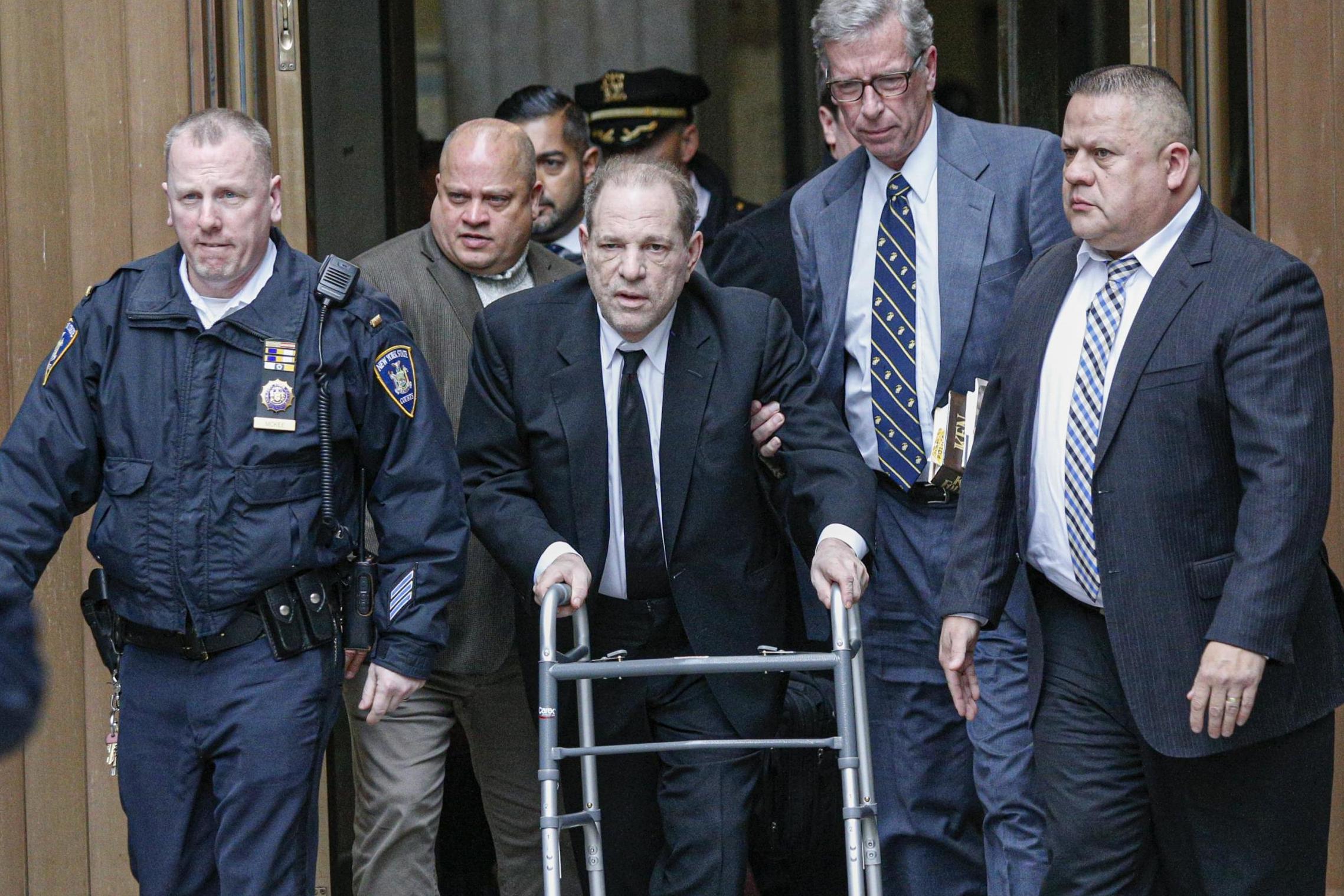Avoiding a 'MeToo backlash': Why jury selection is so important in the Harvey Weinstein trial
Disgraced producer faces up to 25 years in prison if convicted
Your support helps us to tell the story
From reproductive rights to climate change to Big Tech, The Independent is on the ground when the story is developing. Whether it's investigating the financials of Elon Musk's pro-Trump PAC or producing our latest documentary, 'The A Word', which shines a light on the American women fighting for reproductive rights, we know how important it is to parse out the facts from the messaging.
At such a critical moment in US history, we need reporters on the ground. Your donation allows us to keep sending journalists to speak to both sides of the story.
The Independent is trusted by Americans across the entire political spectrum. And unlike many other quality news outlets, we choose not to lock Americans out of our reporting and analysis with paywalls. We believe quality journalism should be available to everyone, paid for by those who can afford it.
Your support makes all the difference.Harvey Weinstein’s criminal trial is officially underway. The proceedings opened on Monday as the producer arrived in Manhattan court, where lawyers and prosecutors argued on procedural matters. A crucial first step will now consist in selecting the 12 jurors who will ultimately rule on whether to convict or acquit Weinstein.
Jury selection in the Weinstein case is expected to last for up to two weeks, which is on the longer side for criminal proceedings such as this one. This projected delay suggests that the selection is expected to be a rather lengthy, complicated process. The main challenge for lawyers on both sides will be to select impartial jurors – a tricky task in a widely publicised case that is also tied to the #MeToo movement.
Moira Kim Penza, who was the lead prosecutor in the Keith Raniere case and is now a partner at Wilkinson Walsh + Eskovitz, a boutique law firm, says that selecting impartial jurors is almost always a challenge – especially in cases involving allegations like the ones brought against Weinstein.
“There are a lot of people with very strong feelings regarding these issues and the #MeToo movement has also put a lot of this front and centre,” she says in a phone interview with The Independent.
Certainly, finding people who are as unbiased as possible remains the goal. But that doesn’t mean lawyers aren’t expecting prospective jurors not to have opinions, says Penza. Rather, they want jurors who can set their opinions aside as needed to follow due process.
“All people come with biases,” she says. “So you’re really looking for people who are willing to put aside those biases and who can be fair and impartial and follow the law.
“It doesn’t mean that you come in without any opinions or without any preconceived notions, but that you are willing to follow the judge’s instructions and come in to listen to the evidence and deliberations with that framework of setting aside whatever preconceived notions you have.”
Some people, however, might be too biased to be fair and impartial. Jury selection is meant to give both sides a chance to them and rule them out.
In Weinstein’s case, bias can work both ways. “Of course, you’re going to have the public’s perception of Harvey Weinstein, but you’re also going to have this #MeToo backlash as well,” says Penza.
“There are a lot of myths and misconceptions about sexual assault victims. And it’s pretty clear that Mr Weinstein’s attorneys intend to pursue a very aggressive defence that will involve cross-examining the accusers. The prosecution is going to want to make sure that the jurors are going to be able to put aside any preconceived notions that they have about how a sexual assault victim should act.”
During jury selection, lawyers can eliminate as many jurors as they want if those potential jurors demonstrate bias (positive or negative) towards Weinstein. They can also excuse up to three jurors through peremptory challenges, which don’t need to be justified or motivated (unless it transpires that potential jurors are being excluded for discriminatory reasons).

Some steps can be taken to help ensure the jury’s impartiality. Weinstein’s team previously tried to move the trial out of Manhattan in the name of neutrality. That request was previously denied. Jurors can also be sequestered, meaning their communications with the outside world are extremely limited. The practice is becoming less and less common, and on Monday Justice James Burke, the judge in charge of the Weinstein case, declined a request from his lawyers to sequester the jury over the next few weeks.
The former movie mogul is facing accusations of raping a woman in 2013 and performing a forcible sex act on another woman in 2006. Weinstein has pleaded not guilty and has denied all allegations of non-consensual sex. If convicted on the most serious charges, he could spend the rest of his life in prison.
